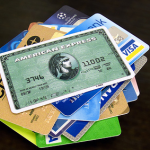There may come a time when a financial problem comes up between you and a loved one. Maybe it’s a late payment that runs up some fees. It could be an old debt that rears it’s ugly head again. Perhaps someone did a little too much damage with credit card spending? Whatever it is the issue will have to be addressed so a solution can be figured out.
Here are some things to consider when confronting your loved one about their financial management problems:
Don’t blame or accuse the other person for the problem. Arguing and blaming doesn’t help. When you lay blame and argue it’s like telling the other person that you’re right and they are wrong. It may be that’s the case but nobody likes to hear that. Start off a discussion like this and you immediately turn your loved one off to what you are saying. Remember the situation has already happened. The point now is to figure out how to solve it.
State the facts. Talk about what has actually happened. Try not to get your emotions involved. This means no name calling. It also means talking about the situation at hand and not bringing up any past discretion. The facts will help you find a resolution.
Talk to your loved one about how the problem arose. How did it get to this point? Ask what they think can be done to solve the problem. Offer your help. Suggest some ideas of your own as a solution. Assure your loved one that you are their for them and that you are in this together. This leads us to…
Take accountability for the problem with your loved one. “But it wasn’t my fault” you might say. Maybe not directly but by sharing in the responsibility you let your loved one know that you are there to help them. The fact that this person is a loved one makes their pain yours as well to some extent. Take that extra step with the olive branch and assure them that together you’ll figure out a solution.
Remember you want to open the person up to discussion. Getting into a financial mess is embarrassing for most. Your loved one probably knows they screwed up somehow so they don’t want to be reminded of how bad a blunder it was. Listen to them. Work on finding a way to both fix the problem at hand and prevent it from happening in the future.
Hopefully you don’t have many financial problems with loved ones in your life. If you come across any, these ideas should help you work things out.
photo credit: timsamoff



